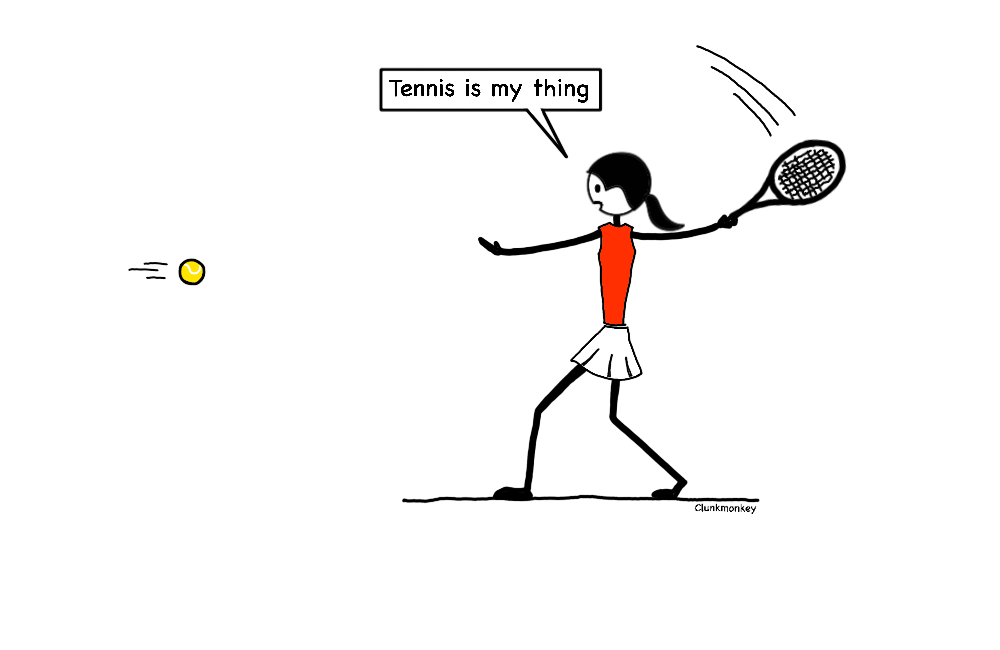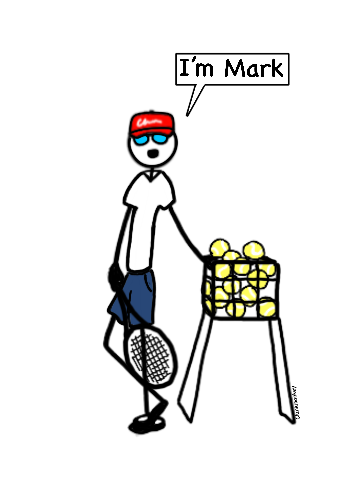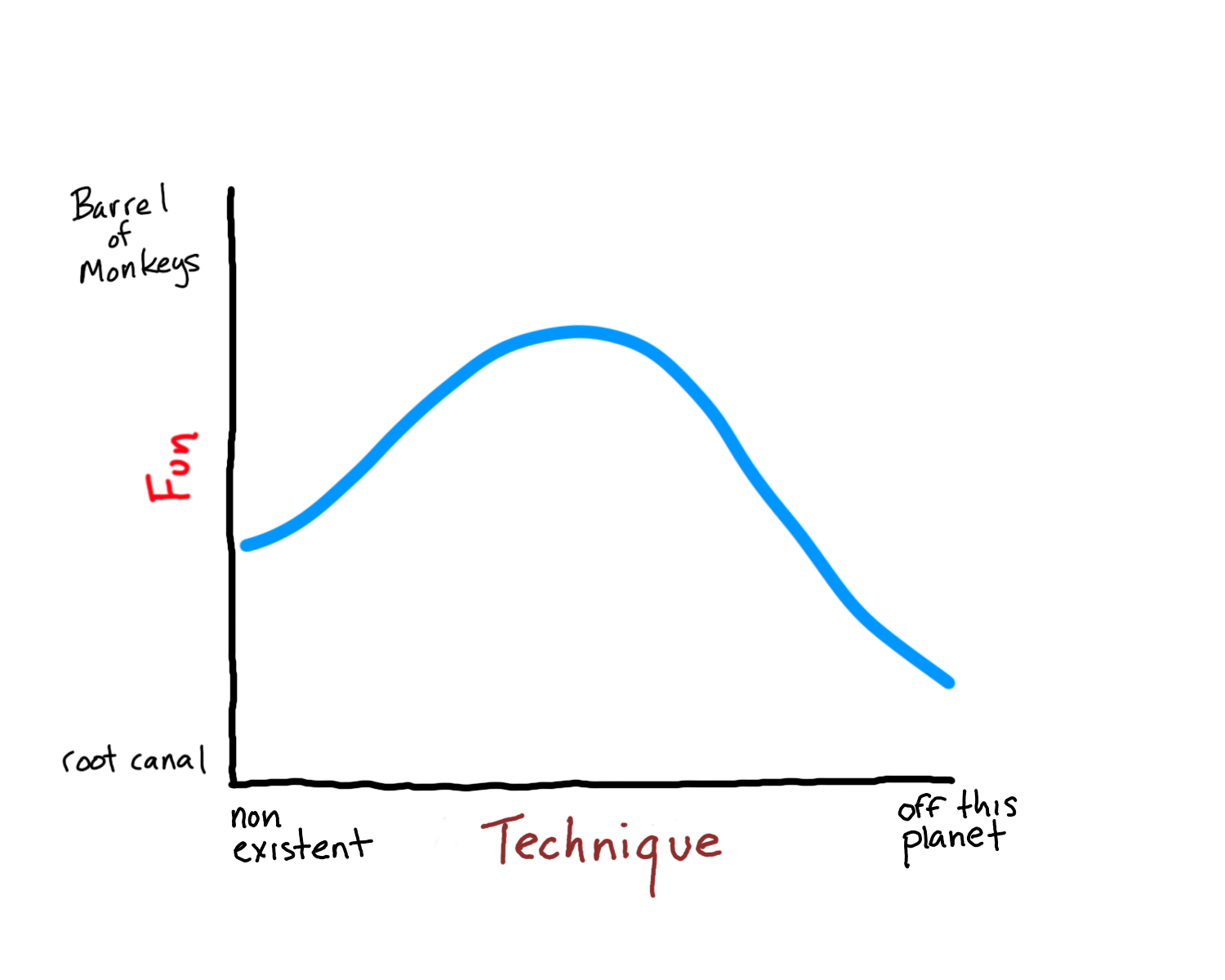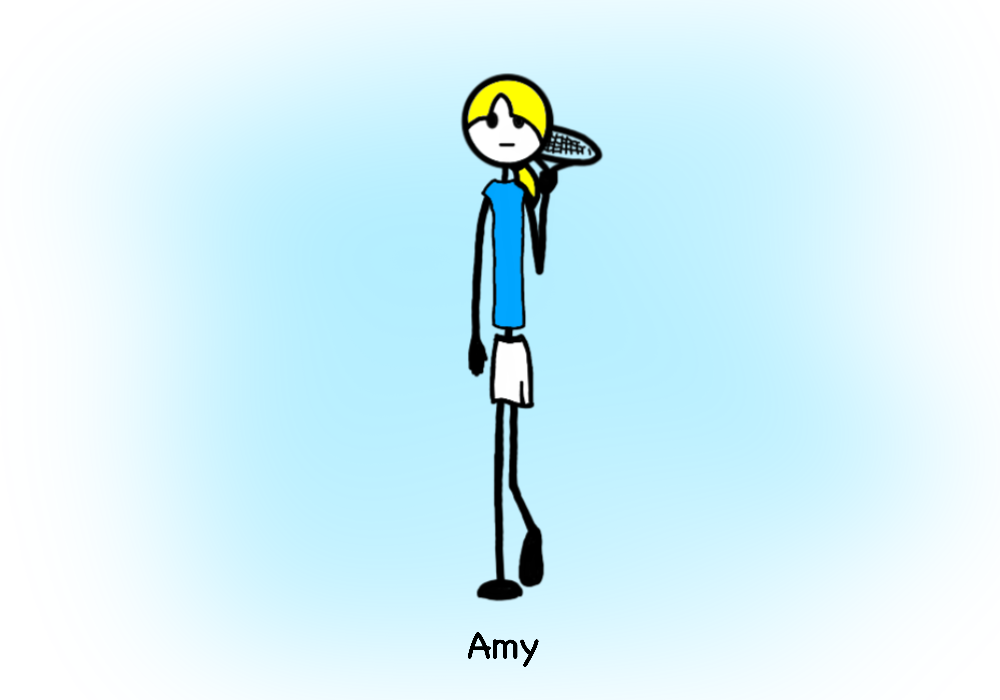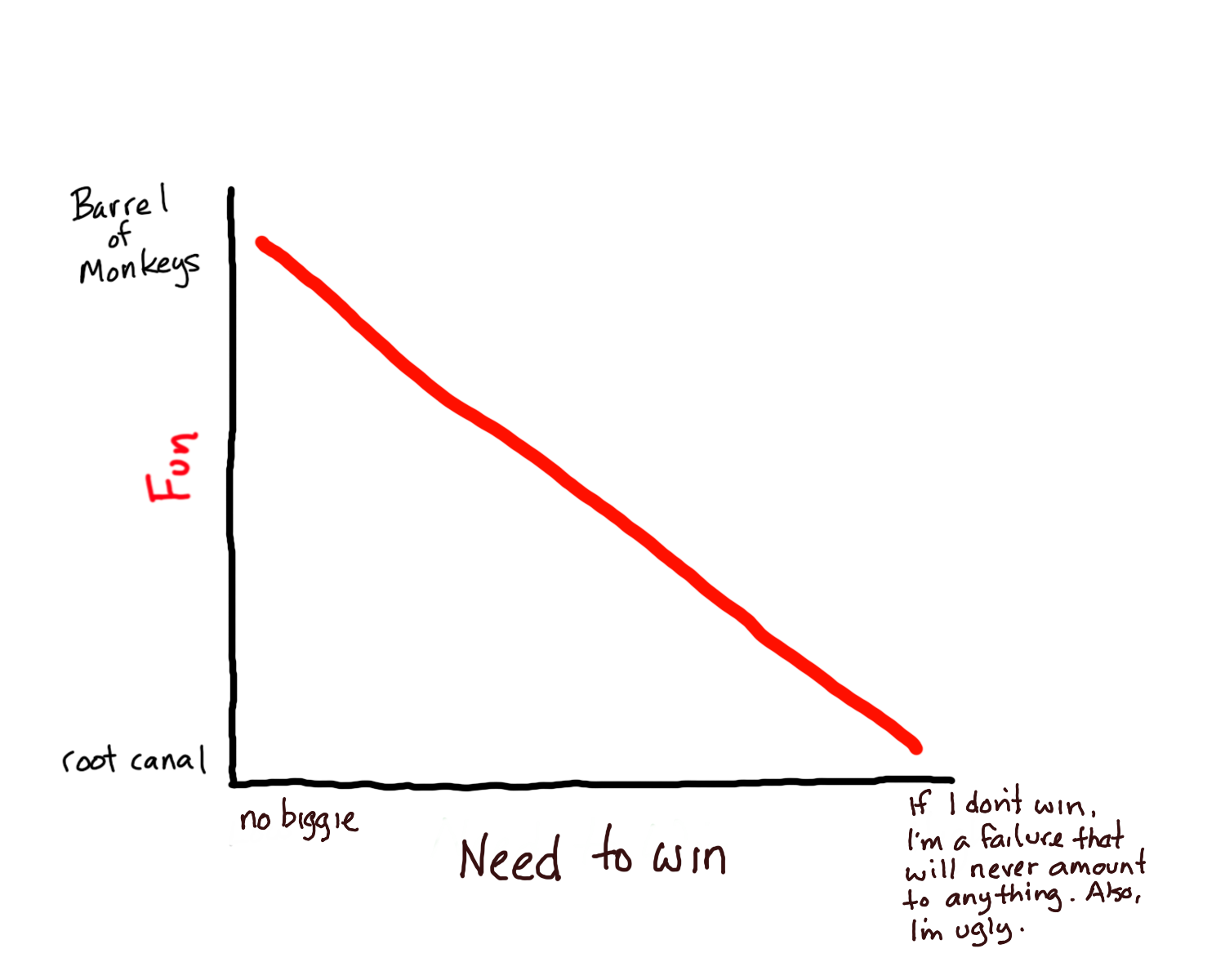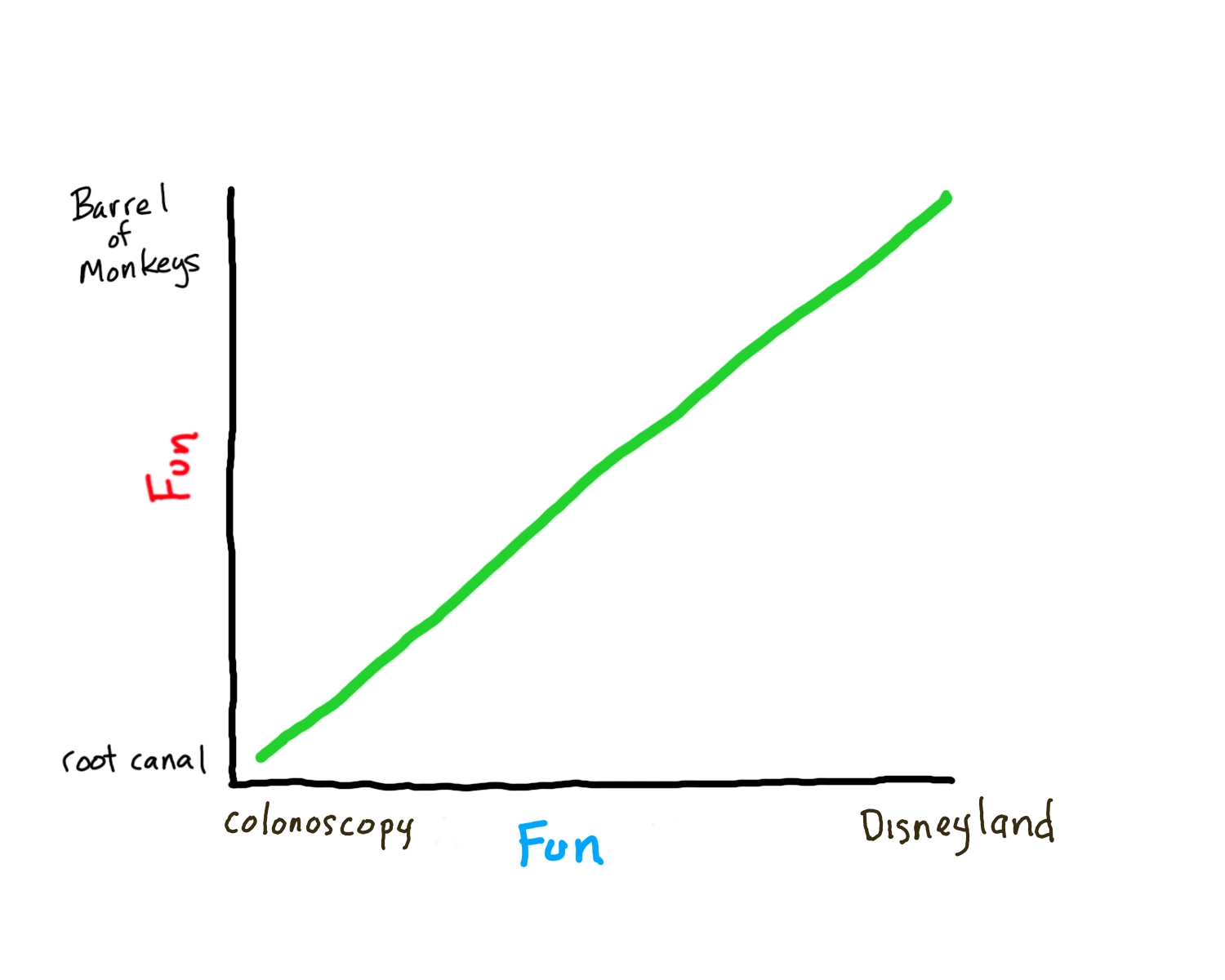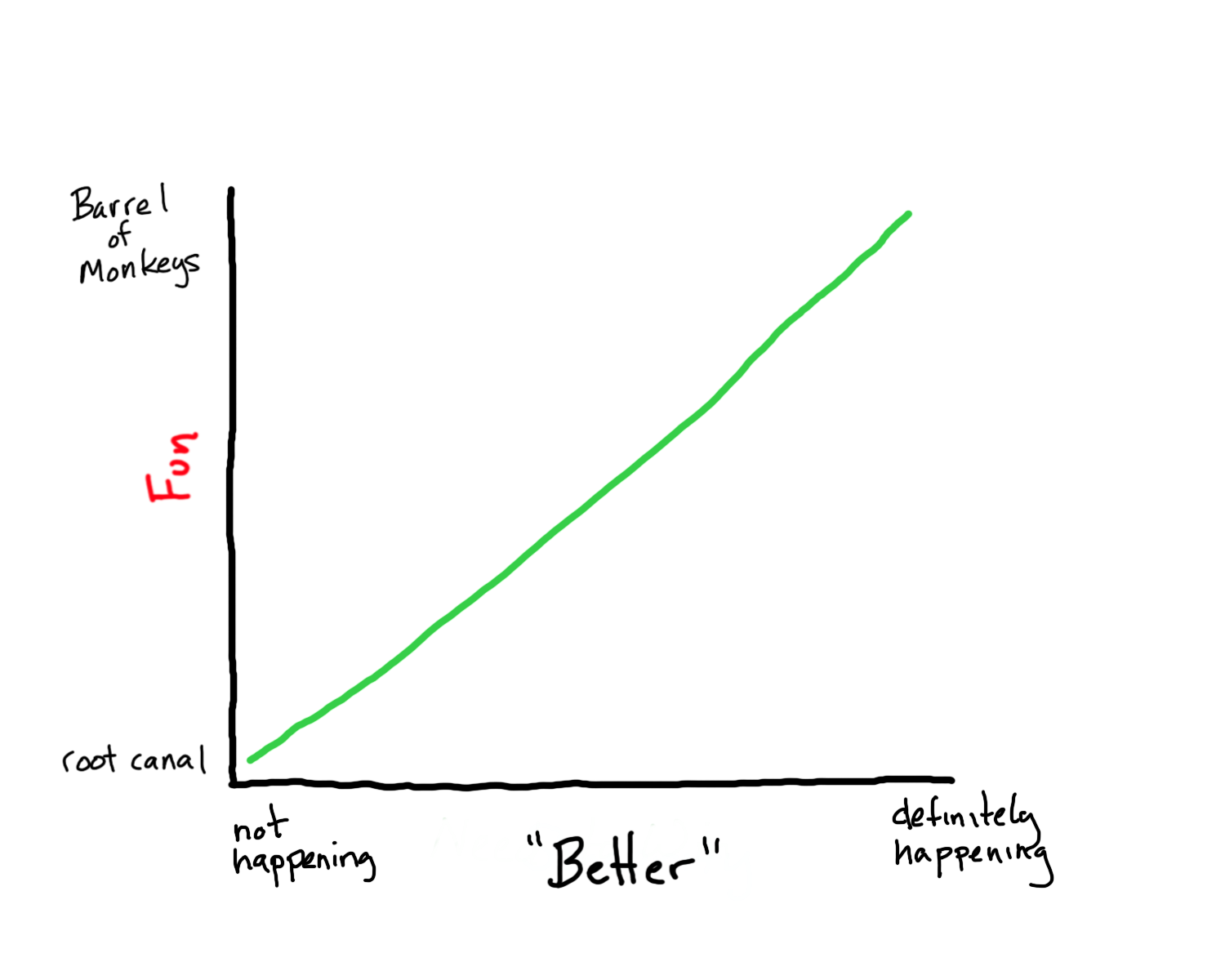Marcie’s thing is tennis.
But her story applies to pretty much every thing.
“Better” = Funner
Marcie wants to get “better” at tennis. She thinks that will make it more fun.
The only problem is… she’s not sure what “better” is.
That’s ok, Mark is. He’s a tennis “pro”.
He tells Marcie that it’s all about technique… you know, how to hit the ball. That makes sense. I mean, look at the game. It’s obviously all about hitting the ball.
Teachers like teaching technique. It’s concrete, scalable re: profitable, (you can teach several students the same thing simultaneously), it’s somewhat measurable, and there are simple methods that deliver fairly predictable, albeit short term, results.
At first, Marcie enjoys learning technique. It feels like she’s doing something solid. But over time, it becomes frustrating. The game feels less natural now. And the topspin backhand, that she can easily hit on Mark’s court, has a nasty habit of hiding when she’s on her own.
Mark tells her not to worry. It takes time to learn to do things the “right” way. He quotes some science to her. Science is always good. Plus, Marcie definitely wants to play the “right” way.
She sets her mind on getting it “right”. But now she internally grades every shot. That’s a drag. The game becomes increasingly less fun.
The technique / fun curve usually goes like this:
Technique starts off as fun, but at the intermediate level the curve turns. It’s all downhill from there. Meaning Marcie has two choices: don’t get any better than intermediate, or try another angle.
Winning = Funner
At a party Marcie runs into another pro, Amy.
Do not be fooled by the demure exterior. Amy is a recently retired professional player. She’s a stone cold killer. The human embodiment of a great white shark. To Amy, every life activity boils down to two categories… wins and losses.
They talk tennis. Amy tells Marcie that Mark is kinda right. Technique… the “how” of tennis sorta matters. But the “why” of it is where the rubber meets the road. And the “why” is always winning. See, I warned you about Amy.
It makes sense to Marcie. I mean, when it’s all said and done, measuring the improvement of technique is pretty subjective. But a win is a win is a win. Also, Amy was a better player than Mark. A lot better. She surely knows more about the game than he does.
Marcie breaks up with Mark. She hates to do it. She learned a lot from him. But the Truth is that technique hasn’t made the game more fun. With Amy she’ll learn to win. Then tennis will be super-fun.
Amy teaches tactics and strategy and mental stuff. Also, Marcie learns a little gamesmanship. (Hey, it’s legal if the rules don’t forbid it… all is fair in love in tennis.)
This stuff is great! Marcie never thought tennis was so complicated. Plus, when you talk strategy and mental stuff to people at a weekend parties, it really sounds like you know your shit. That’s always cool.
But the luster wears off quickly. The winning angle shows its warts. It was hard enough trying to remember how to hit the damn ball. Now Marcie’s gotta remember all this other crap too. The game feels even less like play. Plus, match days now feel like test days. Marcie has always hated taking tests.
Marcie’s no longer playing tennis. She’s playing success vs failure, on a tennis court. And it’s exhausting.
The win / fun relationship goes like this:
Bottom line: Marcie’s quest for fun through “better”, or at least what she’s been told constitutes “better”, has been a bust. No… it’s worse than that, it has made tennis less fun.
But this knowledge about the inverse relationship between better and fun has always been right under Marcie’s nose.
If better technique made the game more fun, the professionals would be having a blast.
Watch them play. Does it look like they’re having the time of their life?
As for winning making play more fun… that’s not possible. Because winning and play don’t occur simultaneously. Winning… or losing, is the result of the playing. Therefor, playing to win is actually playing against play.
I suppose one could argue that it would be more fun to play knowing that you are going to win. But the only way one could truly know that they were going to win was to be a witch (that’s illegal), or to play someone so far below their ability that nothing could go wrong. (That’s no fun)
More fun = More fun
When I meet Marcie she’s adrift.
 She asks me if I can help her become better.
She asks me if I can help her become better.
I ask her why she wants to be better.
She still believes the game will be more fun.
Fun doesn’t require a middleman. The only thing one needs to do to make anything more fun, is to have more fun.
It’s so obvious, we often miss it. And it’s simple to achieve.
We investigate what she really likes about the game. (None of it is performance related.) Then we engineer her play time to incorporate the all things she enjoys.
Marcie instantly has a lot more fun, a lot more often. No added skills or steps are required.
She can’t believe it. Her objective was within reach… all this time.
The fun / fun relationship goes like this:
Makes sense, right?
More fun = “Better”
Here’s where Marcie’s story gets interesting. The more fun she has… the better she plays.
Yep, that’s right. Marcie gets better — A LOT better. Without trying. She figures out how to keep more balls in play. That makes for longer points. Which translates into more exercise. More laughs too.
And the funny thing is that she doesn’t care. “Better”… “worse”, those concepts no longer matter, because she is having fun. Which, if you remember, was the motivation for her journey.
Fun / Better:
I know, it’s a tough sell to people who believe that white knuckling your way to what you want is the way to get it. But there’s a big difference between a tough sell and untrue.
So… do you seek better, or are you after more fun?
If you’re confused, you can always give me a call. C’mon, surely you don’t begrudge me the occasional shameless plug. I have three kids… who eat like seven. And so far, it’s taken me two hours to write this. Two unpaid hours, that is.
I get a fair bit of grief from my fellow coaches for writing these thoroughly unscientific narratives. That’s why I threw some charts into this one. Although, I feel that I have to confess to you that they were mostly props, based upon nothing more than my personal experience.
I once taught tennis to one of America’s top criminal defense attorneys. She told me that the urge to confess can be overwhelming. I think I just proved her point.
But even my well credentialed coaching colleagues, who were probably vigorously trying to google up the data my charts were based upon, until I just admitted to fabricating them, will admit that the charts feel right. Yes, I know there’s more to this than feel. Or, at least I’m pretty sure there is. Actually… I’m not sure at all.
But that doesn’t matter because this isn’t about charts or data… or confessing. Right around here is where I usually lose track of what I started writing about.
One thing I would like to say, before I get back to the main topic — if I can remember what that was — is that a lot of the coaching that’s going on strikes me as a well orchestrated way of selling peoples dreams back to them… at a profit.
Yes, I know that’s a pretty heretical thing for a coach to say. Especially one with three hungry kids. But… it’s honest. For example, I didn’t really do anything for Marcie. She’d already done the heavy lifting on her own. In fact, I was more the beneficiary of good timing… and Mark and Amy’s being wrong, than anything.
Yes, I agree, the Marks and Amys of the world are right for some people. But what has happened to all those that they have been wrong for? How many have they chased from the game? You see, if you start people out on fun and that’s not enough for them, they move on to Mark and Amy. But when one starts out with a Mark… or an Amy, and it’s not a good fit, they’re likely to come to the conclusion that the game is a bummer.
Which reminds me of what I was writing about in the first place… fun. It’s an idea that’s fallen on hard times, I think. Tell your workaholic buddies that you spent an afternoon playing tennis for fun, and that’s likely to be received with the same enthusiasm as telling them you drank a fifth of Jack Daniels and dropped acid. Actually, thinking about that, the Jack and acid story might be better received. At least you did something.
So we cloak the stuff we do for reasons that we don’t understand in ambitious sounding language. “I spent the afternoon working on my game.” That sounds appropriately diligent and serious. The problem arises when we forget we’re bullshitting everyone, and actually believe what we say.
I’m drifting again. This isn’t the point I really want to make. I mean, it’s true, and it’s something I’d like you to consider, but my main point, what I really want to say is this: better is not funner.
Ok. I’ll stop now.
Someday I’ll get the hang of writing. I hope.


